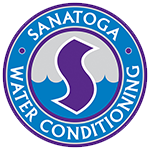Lead
The main source of lead in drinking water is leaching from lead piping and lead solders . Lead enters primarily in areas having soft, acidic waters. When elevated lead levels are found, consult a physician. Children and fetuses are especially sensitive to lead poisoning. Lead, a metal found in natural deposits, is commonly used in household plumbing materials and water service lines. The greatest exposure to lead is swallowing or breathing in lead paint chips and dust. But lead in drinking water can also cause a variety of adverse health effects.
In babies and children, exposure to lead in drinking water above the action level can result in delays in physical and mental development, along with slight deficits in attention span and learning abilities . In adults, it can cause increases in blood pressure. Adults who drink this water over many years could develop kidney problems or high blood pressure . Lead is rarely found in source water, but enters tap water through corrosion of plumbing materials. Homes built before 1986 are more likely to have lead pipes, fixtures, and solder. However, new homes are also at risk : even legally “lead-free” plumbing may contain up to 8 percent lead. The most common problem is with brass or chrome-plated brass faucets and fixtures which can leach significant amounts of lead into the water, especially hot water.
How Is It Regulated?
On June 7, 1991, EPA published a regulation to control lead and copper in drinking water . This regulation is known as the Lead and Copper Rule (also referred to as the LCR or 1991 Rule). The treatment technique for the rule requires systems to monitor drinking water at customer taps. If lead concentrations exceed an action level of 15 ppb or copper concentrations exceed an action level of 1.3 ppm in more than 10% of customer taps sampled , the system must undertake a number of additional actions to control corrosion. This includes a corrosion control study to determine the best available option for reducing lead contamination . If the action level for lead is exceeded, the system must also inform the public about steps they should take to protect their health and may have to replace lead service lines under their control.
How Is It Tested?
There are colorimetric test, which can indicate a presence, but these tests do not meet monitoring requirements for public water supplies . Since lead is a health-based contaminant you should have the water analyze using a laboratory. Laboratories analyzing drinking water samples can utilize various methods including EPA method 200 .7 and 200.8 which utilize an Inductively Coupled Plasma (ICP) or the Standards Method 31138 which uses Graphite Furnace.
How Can We Treat It?
Depending on the source of lead, you may want to consider updating plumbing and fixtures to reduce your exposure. You should check the pH of the water as lower pH can increase the amount of lead that will dissolve , and in this case treat the water by raising the pH to reduce the amount of lead dissolved . You can do this by chemical feed , most residential application can use soda ash but in commercial application a stronger chemical such as sodium hydroxide may be necessary. You can also remove lead with distillation and reverse osmosis in residential applications. There are many counter-top filters and point of use filters, which utilize a media called KDF that is known to reduce lead contamination.
Contact Sanatoga Water Conditioning To Learn More Or To Schedule A Consultation.
Your Neighbors Love Their Cleaner, Safer, Better Water!
Our dedication to our customers is continually rewarded with referrals and testimonials about our water quality solutions!
